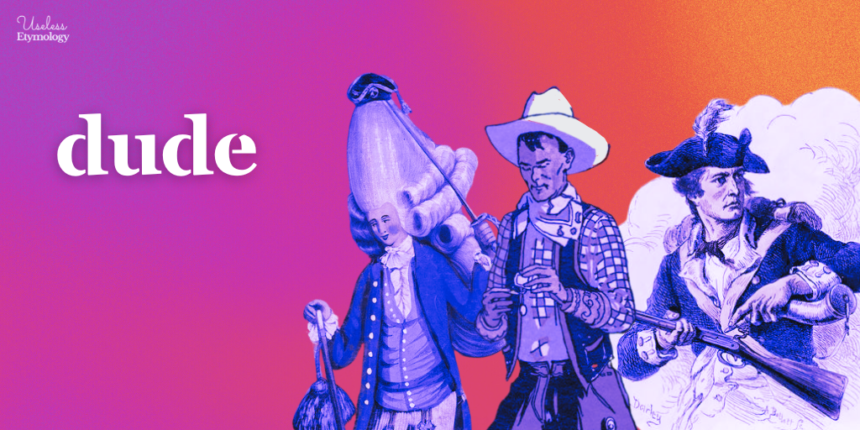The term “dude” was originally used to describe men, particularly those from the Northeast, who were known for their fashion sense, worldliness, and preference for foreign cuisine. Interestingly, it also has a connection to “macaronic language.”
Have you ever wondered about the origins of the word “dude”?
Initially used in the late 1800s to refer to men who were meticulous in their appearance and cultured in their tastes, the term “dude” reflected the aesthetic movement of the time, which focused on beauty and art for its own sake.
Many of these men were wealthy city dwellers from the American Northeast, often referred to as Yankees. The term “dude” is believed to have originated from “Yankee Doodle,” a term used to mock American troops during the French and Indian War.
In the song “Yankee Doodle,” the character is portrayed as a dandy who loves to dance and wear extravagant outfits, including a feathered cap. The term “doodle” likely comes from a German word meaning “fool” or “simpleton.”
Initially, being called a “dude” was not a flattering label.
Furthermore, “Yankee Doodle” references macaroni, a term used to describe men who indulged in luxurious lifestyles, including wearing extravagant clothing and enjoying foreign delicacies like macaroni.
During the 1700s, a group known as the Macaroni Club embraced flamboyant fashion, often sporting elaborate wigs and vibrant garments. The term “macaroni” was also used pejoratively to describe men who challenged traditional gender norms.
Macaronic language, which blends different languages, was named after a late 15th-century poem called “Macaronea.” The term was extended to describe any language blending, including hybrid words from different language families.
In the early 1900s, Northeastern “dudes” began visiting dude ranches in the American West for a taste of authentic Western life. Over time, the term “dude” evolved to become a gender-neutral slang word commonly used today.
The modern usage of “dude” originated in 1960s slang among Black American communities before spreading to universities in California and beyond.
For more insights on the history of the word “dude,” check out my interview with the New York Times in the column “Words Through the Times.” Read more here.






